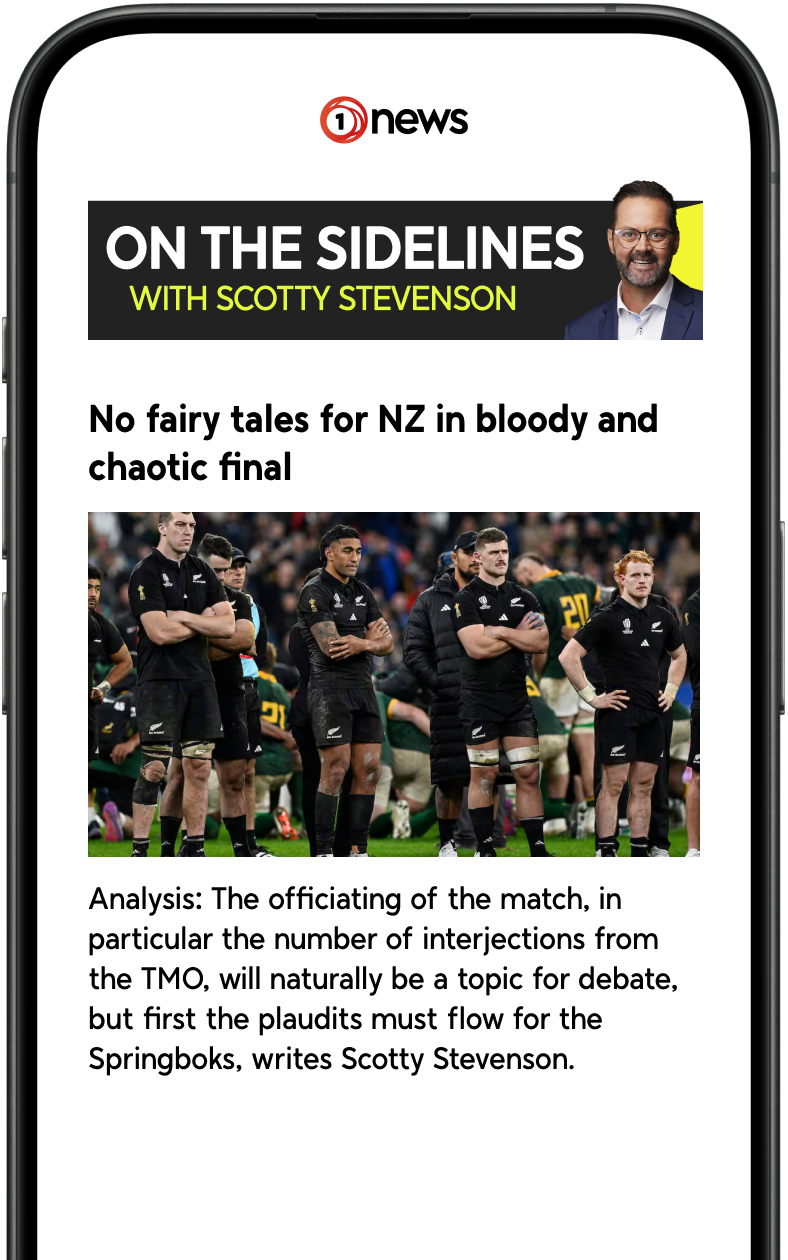Outdated and disappointing - that’s how critics have described a tweet by New Zealand’s most prominent rugby commentator which shamed sports players for crying.
The tweet by veteran commentator Keith Quinn asked what’s happening to “bloke-ism” in the wake of emotional displays from the Pumas rugby team after their weekend victory, as well as tears from now seven-time Formula 1 champion Lewis Hamilton and US Masters victor Dustin Johnson.
“Would the sight of All Blacks wearing pink boots have moved Pinetree Meads? I doubt it. Harden up - blokes of today!” the tweet read.
Quinn later corrected the statement, saying he was “just thinking of the differences from earlier times".
Mental health worker and former All Black Zac Guildford said Quinn’s comments were “outdated”.
“It's that old school mentality isn't it? I think we've tried to so hard to tell our kids it's OK to open up…. I think a comment like that can undo all the hard work others have done….It's pretty disappointing. I respect Keith Quinn as a commentator but I don't respect the comment.”
Guildford’s been open about the mental health struggles he faced as an All Black, and now works with people facing similar struggles in Wairarapa.
“I grew up in that type of stereotype - get on with it, harden up, don't talk about your problems. It obviously had a huge effect on me. All I did was play rugby. I didn't concentrate on the mental side of things - evidently that had an effect on my career.”
NZ Rugby's education and wellbeing manager Dr Nathan Price says as disappointing as the comments were, it’s opened up a conversation about mental health in rugby and it is encouraging to see so many Kiwis challenging Quinn’s comments on social media.
“We work with a high-risk group. We know males are overrepresented in mental health statistics, under 25-year-olds are a massive part of rugby, they're overrepresented. The Māori and Pasifika community, we’ve got over 60 per cent in our professional game from Māori and Pasifika backgrounds and they’re overrepresented in mental health statistics as well.”
He's calling for a rethink of mental health in sport from school level all the way to the top. NZ Rugby holds mental health workshops around the country, and has seen an increase in demand on it’s Headfirst website in recent years.
“Some clubs reach out and say, 'Please come, this is part of our kaupapa.' Other clubs aren’t actually ready for it – [they say] ‘Are our players ready to engage in this discussion around mental health and how we’re feeling?’”
“One thing that would be amazing is when we have players from any sport saying, ‘Actually, I'm struggling with something, I need a break,’ just as you would if you said, 'I've done my hamstring, I've hurt my knee.' That’s a totally legitimate thing they are challenged with that they need to go and get support for.”
Mental health advocate Sir John Kirwan says the ‘harden up’ mentality belongs to an older generation of Kiwis and he wants to see crying normalised in sport.
“If you suppress that cry, it’s not good for you. If you cry you feel better afterwards. It’ll increase your endorphins and your oxytocin and you will feel better. It’s a human need.”
The legendary rugby commentator has been taken to task for his comment on Twitter.
Sports psychologist Sarah Chetwin says sports heroes showing vulnerability can have a positive effect on everyday people who are struggling.
“It's so empowering to see your heroes, your sports people revealing who they really are and sharing their emotional experiences with you. It can really lead to a lot of healing and it can lead to people going out there and finding the help they need when they need it.”




















SHARE ME